Jakub Beneš, University College, Oxford
 Jakub Beneš is Departmental Lecturer in Modern History at University College, Oxford. He has degrees from Middlebury College (BA) and the University of California, Davis (MA, PhD) and has lived and worked in the UK since 2012. He has published articles on the social movements of workers and peasants in Habsburg central Europe in Střed/Centre (2012), Slavic Review (2013), and Forum Historiae (2015). His monograph Workers and Nationalism: Czech and German Social Democracy in Habsburg Austria, 1890-1918 was published in 2016 with Oxford University Press.
Jakub Beneš is Departmental Lecturer in Modern History at University College, Oxford. He has degrees from Middlebury College (BA) and the University of California, Davis (MA, PhD) and has lived and worked in the UK since 2012. He has published articles on the social movements of workers and peasants in Habsburg central Europe in Střed/Centre (2012), Slavic Review (2013), and Forum Historiae (2015). His monograph Workers and Nationalism: Czech and German Social Democracy in Habsburg Austria, 1890-1918 was published in 2016 with Oxford University Press.
Dieter A. Binder, University of Graz and Andrássy University of Budapest
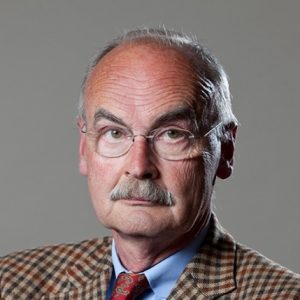 Dieter A. Binder, born 1953, is Professor for Austrian History and Austrian Contemporary History at the University of Graz and Chair of Cultural Studies at the Andrássy University of Budapest.
Dieter A. Binder, born 1953, is Professor for Austrian History and Austrian Contemporary History at the University of Graz and Chair of Cultural Studies at the Andrássy University of Budapest.
Matti Bunzl, Wien Museum
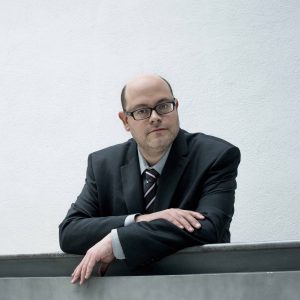 Matti Bunzl is Director of the Wien Museum, Vienna’s municipal museum. Before assuming the position in 2015, he was Professor of Anthropology and History at the University of Illinois (1998-2014) and Artistic Director of the Chicago Humanities Festival (2010-2014). A scholar of Vienna, Austria, and Central Europe’s history and culture as well as the institution of the modern museum, Bunzl is the author of three books: Symptoms of Modernity: Jews and Queers in Late-Twentieth-Century Vienna (University of California Press, 2004) and Anti-Semitism and Islamophobia: Hatreds Old and New in Europe (Prickly Paradigm Press/University of Chicago Press, 2007), and In Search of a Lost Avant-Garde: An Anthropologist Investigates the Contemporary Art Museum (University of Chicago Press, 2014).
Matti Bunzl is Director of the Wien Museum, Vienna’s municipal museum. Before assuming the position in 2015, he was Professor of Anthropology and History at the University of Illinois (1998-2014) and Artistic Director of the Chicago Humanities Festival (2010-2014). A scholar of Vienna, Austria, and Central Europe’s history and culture as well as the institution of the modern museum, Bunzl is the author of three books: Symptoms of Modernity: Jews and Queers in Late-Twentieth-Century Vienna (University of California Press, 2004) and Anti-Semitism and Islamophobia: Hatreds Old and New in Europe (Prickly Paradigm Press/University of Chicago Press, 2007), and In Search of a Lost Avant-Garde: An Anthropologist Investigates the Contemporary Art Museum (University of Chicago Press, 2014).
Erhard Busek, Vienna Economic Forum
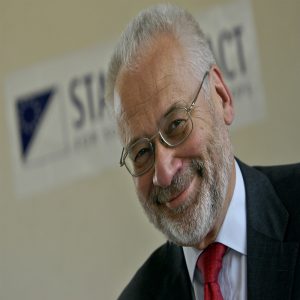
Erhard Busek has served as Vice-Chancellor of the Republic of Austria, Minister for Science and Research, Minister for Education, Special Representative of the Austrian Government for the Enlargement of the European Union, and Special Coordinator of the Stability Pact for Southeastern Europe.
Now, among other positions, he serves as Chairman of the Institute for Danube Region and Central Europe in Vienna, Coordinator of the “Southeast European Cooperative Initiative,” President of the Vienna Economic Forum and as Jean Monnet Professor ad personam.
Barbara Coudenhove-Kalergi, Vienna
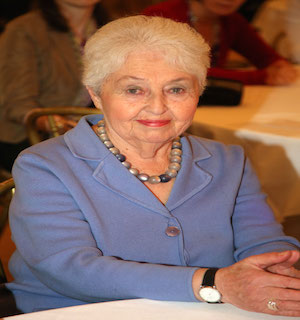 Barbara Coudenhove-Kalergi is an Austrian journalist. Since the 1950s, she worked for several renowned Austrian Newspapers and magazines, among them, from 1967 onwards, for the Socialist “Arbeiter Zeitung”. Since the 1970s she was a correspondent and reporter for the Austrian Public Television ORF in several central European countries. As a member of the Coudenhove-Kalergi family, she is the niece of Richard Coudenhove-Kalergi, the founder of the Paneuropa-movement.
Barbara Coudenhove-Kalergi is an Austrian journalist. Since the 1950s, she worked for several renowned Austrian Newspapers and magazines, among them, from 1967 onwards, for the Socialist “Arbeiter Zeitung”. Since the 1970s she was a correspondent and reporter for the Austrian Public Television ORF in several central European countries. As a member of the Coudenhove-Kalergi family, she is the niece of Richard Coudenhove-Kalergi, the founder of the Paneuropa-movement.
Peter Eigner, University of Vienna
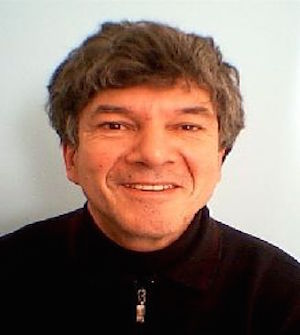 Peter Eigner is Associate Dean of the Faculty of Art and Cultural Studies at the University of Vienna. His main areas of research are the economic development of the Habsburg Monarchy and Austria from the eighteenth to the twenty-first century, Vienna’s urban and economic development, and industrialization in the nineteenth and twentieth centuries. Selected publications include: Sozialgeschichte Wiens 1740-2010: Soziale und ökonomische Ungleichheiten, Wanderungsbewegungen, Hof, Bürokratie, Schule, Theater (2015); Boom und Krach: Österreichs wirtschaftliche Entwicklung um 1873 (2014); and Rudolf Sieghart and the Boden-Credit-Anstalt: A Case Study of the Austrian Banking Crisis of the 1920s and 1930s (2013).
Peter Eigner is Associate Dean of the Faculty of Art and Cultural Studies at the University of Vienna. His main areas of research are the economic development of the Habsburg Monarchy and Austria from the eighteenth to the twenty-first century, Vienna’s urban and economic development, and industrialization in the nineteenth and twentieth centuries. Selected publications include: Sozialgeschichte Wiens 1740-2010: Soziale und ökonomische Ungleichheiten, Wanderungsbewegungen, Hof, Bürokratie, Schule, Theater (2015); Boom und Krach: Österreichs wirtschaftliche Entwicklung um 1873 (2014); and Rudolf Sieghart and the Boden-Credit-Anstalt: A Case Study of the Austrian Banking Crisis of the 1920s and 1930s (2013).Lisa Fischer, Vienna

Lisa Fischer, born 1959, holds a PhD from the University of Vienna. Fischer is a freelance historian with a focus on Gender Studies, biographies, and Fin de siècle Vienna. Her many publications include Lina Loos, Wenn die Muse sich selbst küsst (1994/2007), Die Frauen der Wiener Moderne (1997), Schattenwürfe in die Zukunft, Kaiserin Elisabeth und die Frauen ihrer Zeit (1998), Anna Lülja Praun, Möbel in Balance (2001), Die Riviera an der Donau (2003), Sigmund Freud, Wiener Schauplätze der Psychoanalyse (2005), Irgendwo, Wien Theresienstadt und die Welt. Die Sammlung Heinrich Rieger (2008), Wiederentdeckt, Margarete Depner, Meisterin des Porträts der Siebenbürgischen klassischen Moderne (2011), Liebe im Grünen, Kreative Sommerfrischen in Reichenau und am Semmering (2014), Komm mit nach Terezin. Musik in Theresienstadt (2015), and Marsch der Frauen. Ungehörige Komponistinnen zwischen Aufbruch Bruch und Exil (2016).
Fischer’s numerous prizes include the Golden Award of Honor for the Republic of Austria, the Käthe Leichter Prize 2012, the prize of Education of the City of Vienna 2015.
Cristina Florea, Harvard University

I am a historian of East-Central Europe and Modern Europe in the late 19th and 20th centuries. I completed my PhD at Princeton University, where I wrote a dissertation entitled City of Dreams, Land of Longing: Czernowitz and Bukovina at the Crossroads of Empires. I received a B.A. with highest honors in History and graduated summa cum laudae from Williams College in 2010. I am currently an Academy Scholar at the Weatherhead Institute for International Affairs at Harvard University. I am working on a book manuscript based on my dissertation research, which explores the changing relationship between people, culture, and place in a mobile and politically unstable world through the story of Bukovina – a multilingual, multiethnic province between states and cultural spheres.
Malachi Hacohen, Duke University
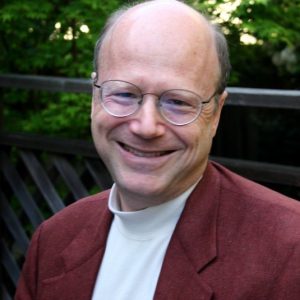 Malachi Haim Hacohen (Ph.D., Columbia) is Bass Fellow, Associate Professor of History, Political Science and Religion, Slavic, German and Jewish studies. He is also the Director of the Center for European Studies at Duke University and Religions and Public Life at the Kenan Institute for Ethics. His Karl Popper – The Formative Years, 1902–1945: Politics and Philosophy in Interwar Vienna (Cambridge, 2000) has won the Herbert Baxter Adams Prize of the AHA and the Victor Adler State Prize. He has published essays on the Central European Jewish intelligentsia, Cold War liberalism, and cosmopolitanism and Jewish identity in The Journal of Modern History, The Journal of the History of Ideas, History and Theory, History of Political Economy, Jewish Social Studies, and other journals and collections. His Jacob & Esau: Jewish European History Between Nation and Empire is forthcoming with Cambridge University Press.
Malachi Haim Hacohen (Ph.D., Columbia) is Bass Fellow, Associate Professor of History, Political Science and Religion, Slavic, German and Jewish studies. He is also the Director of the Center for European Studies at Duke University and Religions and Public Life at the Kenan Institute for Ethics. His Karl Popper – The Formative Years, 1902–1945: Politics and Philosophy in Interwar Vienna (Cambridge, 2000) has won the Herbert Baxter Adams Prize of the AHA and the Victor Adler State Prize. He has published essays on the Central European Jewish intelligentsia, Cold War liberalism, and cosmopolitanism and Jewish identity in The Journal of Modern History, The Journal of the History of Ideas, History and Theory, History of Political Economy, Jewish Social Studies, and other journals and collections. His Jacob & Esau: Jewish European History Between Nation and Empire is forthcoming with Cambridge University Press.
Deborah Holmes, University of Kent
 Deborah Holmes is Senior Lecturer in German at the University of Kent. She studied Modern Languages at Oxford (New College), Pavia and Salzburg, and held postdoctoral fellowships at Oxford (The Queen’s College), the Ludwig-Maximilians-Universität in Munich (Alexander von Humboldt Fellow) and the IFK in Vienna. She was College and University Lecturer in German at New College, Oxford 2003-2004, and researcher at the Ludwig Boltzmann Institute for the History and Theory of Biography in Vienna 2005-2010, working primarily on a biography of the philanthropist, pedagogue and journalist Eugenie Schwarzwald. Her research focuses on late nineteenth and early twentieth century Austrian literature and culture. She has also worked on German and Italian antifascist exile literature of the 1930s and 1940s. Other interests include Viennese Modernism, the cinema of Michael Haneke, the history of feuilleton journalism in German and literary translation. Deborah Holmes is co-editor of the MHRA journal Austrian Studies.
Deborah Holmes is Senior Lecturer in German at the University of Kent. She studied Modern Languages at Oxford (New College), Pavia and Salzburg, and held postdoctoral fellowships at Oxford (The Queen’s College), the Ludwig-Maximilians-Universität in Munich (Alexander von Humboldt Fellow) and the IFK in Vienna. She was College and University Lecturer in German at New College, Oxford 2003-2004, and researcher at the Ludwig Boltzmann Institute for the History and Theory of Biography in Vienna 2005-2010, working primarily on a biography of the philanthropist, pedagogue and journalist Eugenie Schwarzwald. Her research focuses on late nineteenth and early twentieth century Austrian literature and culture. She has also worked on German and Italian antifascist exile literature of the 1930s and 1940s. Other interests include Viennese Modernism, the cinema of Michael Haneke, the history of feuilleton journalism in German and literary translation. Deborah Holmes is co-editor of the MHRA journal Austrian Studies.
Roman Horak, University of Applied Arts Vienna
 Roman Horak is a professor and Head of the Department of Cultural Studies at the University of Applied Arts Vienna. From October 1988 to March 1989 he was an Honorary Visiting Fellow at the Department of Sociology, University of Leicester.
Roman Horak is a professor and Head of the Department of Cultural Studies at the University of Applied Arts Vienna. From October 1988 to March 1989 he was an Honorary Visiting Fellow at the Department of Sociology, University of Leicester.
He is currently on the editorial committee of ‘Culture Unbound’ and the ‘European Journal for Cultural Studies’ and he was a board member of the ‘Association for Cultural Studies’(ACS) from 2008 – 2016. His research focuses on the politics of the popular. He has published 19 books and about 150 articles in academic journals and books.
His latest international publication is About Raymond Williams (ed. with L. Grossberg & M. Seidl), Routledge 2010. An edited German version Über Raymond Williams. Annäherungen. Positionen. Ausblicke (ed. with Ingo Pohn-Lauggas and Monika Seidl) Argument Verlag 2017, came out this spring.
Helmut Konrad, University of Graz and Ludwig Boltzmann Institute
 Helmut Konrad is Professor of Contemporary History at the University of Graz and Director of the Ludwig Boltzmann Institute for Cultural History, Linz-Graz. He has previously served as Dean of the Faculty of Humanities and Rector of the University of Graz. He received his PhD from the University of Vienna with highest distinction, in 1973, and his habilitation at the University of Linz in 1980. He has been a Visiting Professor at Yale University and Cornell University (USA), the Univerity of Waterloo (Canada), and the European University Institute (Italy), and receivhed an honorary degree from the University of Shkodra (Albania) in 1996. He is a member of the Board of Austriaca, Paris, and of the Austrian History Yearbook, Minneapolis. He has published seven books, 41 edited volumes, and 250 articles. He has received various awards, including the Theodor Koerner Prize, the Victor Adler Prize, the Vienna Award 2002 for Humanities, and the Verkauf-Verlong Prize for antifascist literature in 2008.
Helmut Konrad is Professor of Contemporary History at the University of Graz and Director of the Ludwig Boltzmann Institute for Cultural History, Linz-Graz. He has previously served as Dean of the Faculty of Humanities and Rector of the University of Graz. He received his PhD from the University of Vienna with highest distinction, in 1973, and his habilitation at the University of Linz in 1980. He has been a Visiting Professor at Yale University and Cornell University (USA), the Univerity of Waterloo (Canada), and the European University Institute (Italy), and receivhed an honorary degree from the University of Shkodra (Albania) in 1996. He is a member of the Board of Austriaca, Paris, and of the Austrian History Yearbook, Minneapolis. He has published seven books, 41 edited volumes, and 250 articles. He has received various awards, including the Theodor Koerner Prize, the Victor Adler Prize, the Vienna Award 2002 for Humanities, and the Verkauf-Verlong Prize for antifascist literature in 2008.
Wolfgang Maderthaner, Österreichisches Staatsarchiv
 Wolfgang Maderthaner, General Director of the Austrian State Archives, was previously the Head of the Association for the History of the Working-Class Movement (Verein für Geschichte der Arbeiterbewegung) for many years. His research and publications, which have appeared in many languages, focus on Austrian working-class and social history, modern European cultural history, Urban Studies and Cultural Studies, history of political economy and historical methodology. Some of his publications include: Unruly Masses. The Other Face of Fin de Siècle Vienna (with Lutz Musner, 2008); L’autoliquidation de la raison. Les sciences de la culture et la crise du social (2010); Neoliberalismus und die Krise des Sozialen (with Andrea Grisold 2010); “Untergang einer Welt. Der Große Krieg 1914-1918” in Photographien und Texten (2013) and Der Wiener Kongress. Die Erfindung Europas (editor, 2014).
Wolfgang Maderthaner, General Director of the Austrian State Archives, was previously the Head of the Association for the History of the Working-Class Movement (Verein für Geschichte der Arbeiterbewegung) for many years. His research and publications, which have appeared in many languages, focus on Austrian working-class and social history, modern European cultural history, Urban Studies and Cultural Studies, history of political economy and historical methodology. Some of his publications include: Unruly Masses. The Other Face of Fin de Siècle Vienna (with Lutz Musner, 2008); L’autoliquidation de la raison. Les sciences de la culture et la crise du social (2010); Neoliberalismus und die Krise des Sozialen (with Andrea Grisold 2010); “Untergang einer Welt. Der Große Krieg 1914-1918” in Photographien und Texten (2013) and Der Wiener Kongress. Die Erfindung Europas (editor, 2014).
Michaela Maier, Verein für Geschichte der ArbeiterInnenbewegung (VGA)
 Michaela Maier has been Director of the Austrian Labor History Society in Vienna (VGA) since 2012 and specialized in theater studies, social and cultural anthropology, and philosophy and comparative literature at the University of Vienna. Since 2011, she has been active in the VGA-management of the EU project “Hope. Heritage of the People’s Europe“, http://www.peoplesheritage.eu/. Since 2012 management of “Plattform zeithistorischer politischer Archive: www.zeithistorische-archive.at“. She is the 2005 award winner of “Bruno-Kreisky-Award for the Political Book”: Wolfgang Maderthaner, Michaela Maier (eds.), “Der Führer bin ich selbst“ Engelbert Dollfuß – Benito Mussolini. Briefwechsel, Vienna 2004. Other selected Publications: Acht Stunden aber wollen wir Mensch sein. Der 1. Mai. Geschichte und Geschichten, (ed. with Wolfgang Maderthaner); Im Bann der Schattenjahre. Wien in der Zeit der Wirtschaftskrise 1929 bis 1934,(ed. with Wolfgang Maderthaner); Julius Deutsch. Kriegserlebnisse eines Friedliebenden.Aufzeichnungen aus dem Ersten Weltkrieg, (ed. with Georg Spitaler); Friedrich Adler vor dem Ausnahmegericht. Das Attentat gegen den Ersten Weltkrieg, (ed. with Georg Spitaler).
Michaela Maier has been Director of the Austrian Labor History Society in Vienna (VGA) since 2012 and specialized in theater studies, social and cultural anthropology, and philosophy and comparative literature at the University of Vienna. Since 2011, she has been active in the VGA-management of the EU project “Hope. Heritage of the People’s Europe“, http://www.peoplesheritage.eu/. Since 2012 management of “Plattform zeithistorischer politischer Archive: www.zeithistorische-archive.at“. She is the 2005 award winner of “Bruno-Kreisky-Award for the Political Book”: Wolfgang Maderthaner, Michaela Maier (eds.), “Der Führer bin ich selbst“ Engelbert Dollfuß – Benito Mussolini. Briefwechsel, Vienna 2004. Other selected Publications: Acht Stunden aber wollen wir Mensch sein. Der 1. Mai. Geschichte und Geschichten, (ed. with Wolfgang Maderthaner); Im Bann der Schattenjahre. Wien in der Zeit der Wirtschaftskrise 1929 bis 1934,(ed. with Wolfgang Maderthaner); Julius Deutsch. Kriegserlebnisse eines Friedliebenden.Aufzeichnungen aus dem Ersten Weltkrieg, (ed. with Georg Spitaler); Friedrich Adler vor dem Ausnahmegericht. Das Attentat gegen den Ersten Weltkrieg, (ed. with Georg Spitaler).
Sylvia Mattl-Wurm, Vienna

Sylvia Mattl-Wurm, historian and art historian, has been the Director of the Vienna Library (Wienbibliothek im Rathaus) since 2004. Before, she had served as the Curator for many exhibitions at the Wien Museum. She has published profusely on Viennese cultural history and Viennese collections. Most recently, she has edited “Jeder sei sein eigener Dekorateur“: Zur Geschichte der Loos-Räume in Wien I., Bartensteingasse 9 (Vienna 2013), and, with Alfred Pfoser, Die Vermessung der Stadt: Die Lehmannschen Adressbücher 1859 – 1942 (Vienna 2011) and 10 Jahre Wienbibliothek (Vienna 2016).
Gerhard Meißl, Vienna
 Gerhard Meißl (1942) is an economic and social historian. He has been co-editor of Historischer Atlas von Wien (Vienna 1981-2015) and of Metropole Wien. Texturen der Moderne (Vienna 2000). Besides Vienna, his main areas of research are comparative regional economic and social history, labour history and environmental history.
Gerhard Meißl (1942) is an economic and social historian. He has been co-editor of Historischer Atlas von Wien (Vienna 1981-2015) and of Metropole Wien. Texturen der Moderne (Vienna 2000). Besides Vienna, his main areas of research are comparative regional economic and social history, labour history and environmental history.
Maria Mesner, Kreisky Archives

Maria Mesner (PhD.) teaches at the Institute of Contemporary History and is co-editor of the Austrian Journal for Historical Studies. She heads the Kreisky Archives, Vienna, and is a historian of gender relations and political culture in Europe as well as the US. Her current research deals with the political journal of Josef Staribacher, state secretary for commerce and energy in Austria from 1970 to 1983, and the transformations of political culture during the 1970s.
Charlotte Natmeßnig, Vienna University of Business and Administration

Charlotte Natmeßnig is Lecturer at the Vienna University of Business and Administration. Her fields of research are banking history, Austrian and European economic history of the 19th and 20th centuries, media history and business history.
Alfred Pfoser, Vienna
 Alfred Pfoser, born in 1952, majored in German Studies, History and Journalism in Salzburg. He was Head of the Vienna Libraries from 1998 to 2007, and from 2007 to 2016, Head of Printed Collections and Deputy Director of the Wienbibliothek im Rathaus. Multiple publications on Austrian cultural and literary history, most recently: Zur Eleganz des runden Leders: Wiener Fußball 1920-1965 (Göttingen 2008); Die Vermessung Wiens: Lehmanns Adressbücher 1859 – 1942 (Wien 2011); and Wien im Ersten Weltkrieg (2013). He is presently engaged in a book project on Austria from 1918 to 1920.
Alfred Pfoser, born in 1952, majored in German Studies, History and Journalism in Salzburg. He was Head of the Vienna Libraries from 1998 to 2007, and from 2007 to 2016, Head of Printed Collections and Deputy Director of the Wienbibliothek im Rathaus. Multiple publications on Austrian cultural and literary history, most recently: Zur Eleganz des runden Leders: Wiener Fußball 1920-1965 (Göttingen 2008); Die Vermessung Wiens: Lehmanns Adressbücher 1859 – 1942 (Wien 2011); and Wien im Ersten Weltkrieg (2013). He is presently engaged in a book project on Austria from 1918 to 1920.
Anson Rabinbach, Princeton University
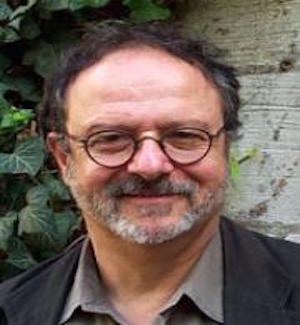 Anson Rabinbach is a specialist in modern European history with an emphasis on intellectual and cultural history. He has published extensively on Nazi Germany, Austria, and European thought in the nineteenth and twentieth centuries. In 1974 he co-founded the premier journal of German studies in the United States, New German Critique, which he continues to co-edit. In 1979 he published The Crisis of Austrian Socialism: From Red Vienna to Civil War 1927-1934, a study of Austrian culture and politics between the wars. The Human Motor, an investigation of the metaphor of work and energy that provided modern thinkers with a new scientific and cultural framework to understand the human body, appeared in 1991 and has since been translated into several languages. His study of 20th century German intellectuals, In the Shadow of Catastrophe: German Intellectuals between Enlightenment and Apocalypse, was published in 1997. The Third Reich Sourcebook (with Sander L. Gilman), a collection of more than 400 documents with critical introductions, appeared in July 2013. His current research is on concepts invented in the 20th century, including “totalitarianism” and genocide. It emphasizes World War II exchanges between European and American intellectuals. He also writes and reviews widely for journals of opinion including The New York Times, The Times Literary Supplement, Dissent, and The Nation. He received the Viktor Adler State Prize in 1987. Professor Rabinbach has also been the recipient of Guggenheim, ACLS, and NEH fellowships.
Anson Rabinbach is a specialist in modern European history with an emphasis on intellectual and cultural history. He has published extensively on Nazi Germany, Austria, and European thought in the nineteenth and twentieth centuries. In 1974 he co-founded the premier journal of German studies in the United States, New German Critique, which he continues to co-edit. In 1979 he published The Crisis of Austrian Socialism: From Red Vienna to Civil War 1927-1934, a study of Austrian culture and politics between the wars. The Human Motor, an investigation of the metaphor of work and energy that provided modern thinkers with a new scientific and cultural framework to understand the human body, appeared in 1991 and has since been translated into several languages. His study of 20th century German intellectuals, In the Shadow of Catastrophe: German Intellectuals between Enlightenment and Apocalypse, was published in 1997. The Third Reich Sourcebook (with Sander L. Gilman), a collection of more than 400 documents with critical introductions, appeared in July 2013. His current research is on concepts invented in the 20th century, including “totalitarianism” and genocide. It emphasizes World War II exchanges between European and American intellectuals. He also writes and reviews widely for journals of opinion including The New York Times, The Times Literary Supplement, Dissent, and The Nation. He received the Viktor Adler State Prize in 1987. Professor Rabinbach has also been the recipient of Guggenheim, ACLS, and NEH fellowships.
Doron Rabinovici, Vienna

Doron Rabinovici, a novelist, essayist, and historian, was born in 1961 in Tel Aviv. He has lived in Vienna since 1964. His novel, Andernorts, was short-listed for the German Book Prize in 2010. His non-fiction study of the Jewish Council in World War II Vienna, Instanzen der Ohnmacht was published by Polity Press in 2011 as Eichmann’s Jews. From 2013 to 2015 Doron Rabinovici and Matthias Hartmann produced the performance “The Last Witnesses”. The production staged the memory of seven survivors and was set on the main stage of the Viennese Burgtheater. In 2016 he published together with Natan Sznaider: Herzl Reloaded. His numerous awards include the Anton Wildgans Prize, the Clemens Brentano Prize or the Austrian Book Trade Honorary Award for Tolerance in Thought and Action.
Oliver Rathkolb, University of Vienna
 Oliver Rathkolb is Professor at the Department of Contemporary History at the University of Vienna. He is author of several books focusing on contemporary history as well as editor and co-editor of several studies concerning interdisciplinary questions of contemporary history and communications/media history, including his prize-winning study The Paradoxical Republic. Austria 1945-2005 (Oxford 2010). He is the managing editor of zeitgeschichte (Contemporary History) and member of the advisory board of the ‘House of European History’ (European Parliament, Brussels) and of the Jewish Museum Vienna. He is also the chairman of the international advisory board of the ‘House of Austrian History’.
Oliver Rathkolb is Professor at the Department of Contemporary History at the University of Vienna. He is author of several books focusing on contemporary history as well as editor and co-editor of several studies concerning interdisciplinary questions of contemporary history and communications/media history, including his prize-winning study The Paradoxical Republic. Austria 1945-2005 (Oxford 2010). He is the managing editor of zeitgeschichte (Contemporary History) and member of the advisory board of the ‘House of European History’ (European Parliament, Brussels) and of the Jewish Museum Vienna. He is also the chairman of the international advisory board of the ‘House of Austrian History’.
Werner Michael Schwarz, University of Vienna and University of Klagenfurt
 Werner Michael Schwarz is Dozent at the University of Klagenfurt, and a curator at the Wien Museum. He holds a PhD in history from the University of Vienna. His main research interests include urban studies, media studies, and film studies. He has recently edited, with Susanne Winkler, the the Exhibition Catalogue of Romane Thana. Orte der Roma und Sinti (2015) and, with Wolfgang Kos, Mythos Galizien (2015). He has made additional publications in urban, film and media history.
Werner Michael Schwarz is Dozent at the University of Klagenfurt, and a curator at the Wien Museum. He holds a PhD in history from the University of Vienna. His main research interests include urban studies, media studies, and film studies. He has recently edited, with Susanne Winkler, the the Exhibition Catalogue of Romane Thana. Orte der Roma und Sinti (2015) and, with Wolfgang Kos, Mythos Galizien (2015). He has made additional publications in urban, film and media history.
Georg Spitaler, Verein für Geschichte der ArbeiterInnenbewegung (VGA)
 Georg Spitaler is Researcher at theAssociation for the History of the Labor Movement (VGA) in Vienna. He studied political science and history at the University of Vienna and was a junior fellow at the IFK (2002-3) and Duke University (2004). He held a post-doctoral position at the Department of Political Science of the University of Vienna and served as a Lecturer at the University of Applied Arts. He is recipient of the Victor Adler State Prize for younger scholars for his book Authentischer Sport – inszenierte Politik? He has published widely in cultural studies and football history and is a national research partner of the FWF project “Jewish sports officials in Vienna between the wars,” and has recently co-edited books on Friedrich Adler and Julius Deutsch.
Georg Spitaler is Researcher at theAssociation for the History of the Labor Movement (VGA) in Vienna. He studied political science and history at the University of Vienna and was a junior fellow at the IFK (2002-3) and Duke University (2004). He held a post-doctoral position at the Department of Political Science of the University of Vienna and served as a Lecturer at the University of Applied Arts. He is recipient of the Victor Adler State Prize for younger scholars for his book Authentischer Sport – inszenierte Politik? He has published widely in cultural studies and football history and is a national research partner of the FWF project “Jewish sports officials in Vienna between the wars,” and has recently co-edited books on Friedrich Adler and Julius Deutsch.
Saskia Stachowitsch, University of Vienna
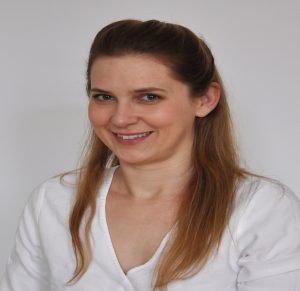
Saskia Stachowitsch is a Senior Research Fellow (Elise-Richter-Grant of the FWF (Austrian Science Fund) and Lecturer at the Department of Political Science, University of Vienna. Her research focuses on feminist theories in international relations, security studies, and global political economy as well as on Jewish political history, parliamentarianism, and antiSemitism in Austria. Recent publications include Jüdische Identitäten und antisemitische Politiken im österreichischen Parlament 1861 bis 1933 (with Eva Kreisky), Böhlau 2017; Everyday Matters in Global Private Security Supply Chains: A Feminist Global Political Economy Perspective on Gurkhas in Private Security (with Amanda Chisholm), in Globalizations 13(6), 2016.
Martina Steer, University of Vienna
 Martina Steer has studied history and economics in Berlin, Rotterdam and Munich and has earned her PhD at the University of Vienna. She has been a research fellow at the Simon Dubnow Institute in Leipzig, the University of Wrocław, the German Historical Institute in Washington, the European University Institute in Florence, and the Institute for Human Sciences in Vienna. She now teaches as assistant professor at the University of Vienna. Her work includes the broader fields of European history, collective remembrance, Jewish and intellectual history, gender studies and the theory of history with a focus on cultural transfers and comparative history. She is currently working on a project about the transnational memory of the philosopher Moses Mendelssohn.
Martina Steer has studied history and economics in Berlin, Rotterdam and Munich and has earned her PhD at the University of Vienna. She has been a research fellow at the Simon Dubnow Institute in Leipzig, the University of Wrocław, the German Historical Institute in Washington, the European University Institute in Florence, and the Institute for Human Sciences in Vienna. She now teaches as assistant professor at the University of Vienna. Her work includes the broader fields of European history, collective remembrance, Jewish and intellectual history, gender studies and the theory of history with a focus on cultural transfers and comparative history. She is currently working on a project about the transnational memory of the philosopher Moses Mendelssohn.
Leslie Topp, Birbeck, University of London
 Leslie Topp is Senior Lecturer in the History of Architecture at Birbeck, University of London. She is author of Architecture and Truth in Fin-de-Siècle Vienna (Cambridge UP, 2004) and co-editor of Madness, Architecture, and the Built Environment (Routledge, 2007). She co-curated the exhibition Madness and Modernity: Mental Illness and the Visual Arts in Vienna 1900 (Wellcome Collection, London and Wien Museum, 2009-10). Her book Freedom and the Cage: Modern Architecture and Psychiatry in Central Europe, 1890-1914 comes out with Penn State University Press in May 2017.
Leslie Topp is Senior Lecturer in the History of Architecture at Birbeck, University of London. She is author of Architecture and Truth in Fin-de-Siècle Vienna (Cambridge UP, 2004) and co-editor of Madness, Architecture, and the Built Environment (Routledge, 2007). She co-curated the exhibition Madness and Modernity: Mental Illness and the Visual Arts in Vienna 1900 (Wellcome Collection, London and Wien Museum, 2009-10). Her book Freedom and the Cage: Modern Architecture and Psychiatry in Central Europe, 1890-1914 comes out with Penn State University Press in May 2017.
Heidemarie Uhl, University of Vienna

Heidemarie Uhl (born 1956) is a senior researcher at the Austrian Academy of Sciences in Vienna and lecturer at the University of Vienna and the University of Graz. She holds a PhD in Contemporary History from the University of Graz. She was a guest professor at Strasbourg University, Hebrew University Jerusalem, Strasbourg University, AUB Andrassy University Budapest and Stanford University. Uhl is a member of the Austrian Delegation to the International Holocaust Remembrance Alliance and member of the scientific board of the Haus der Geschichte Österreich (vice chairperson), the Militärhistorische Denkmalkommission at the Austrian Ministry of Defence (vice chairperson) and the Fachkommission der Stiftung Brandenburgische Gedenkstätten. She is member of the editorial board of Zeitgeschichte and of Contemporary Austrian Studies. She is currently directing the project Neugestaltung des Österreichischen Heldendenkmals in Vienna (Reconceptualisation of the Austrian Hero’s Monument).
Andreas Weigl, University of Vienna
 Andreas Weigl, is an assistant professor at the University of Vienna’s Department of Economic and Social History, and a member of the scientific staff of the Municipal and Provincial Archives of Vienna. He was visiting professor at the University of Innsbruck in 2010 and at the University of Vienna in 2012. Since 2011, Weigl has served as head of the Austrian Urban History Research Group. His main fields of research are historical demography, urban history, economic history of the tertiary sector and social history of medicine.
Andreas Weigl, is an assistant professor at the University of Vienna’s Department of Economic and Social History, and a member of the scientific staff of the Municipal and Provincial Archives of Vienna. He was visiting professor at the University of Innsbruck in 2010 and at the University of Vienna in 2012. Since 2011, Weigl has served as head of the Austrian Urban History Research Group. His main fields of research are historical demography, urban history, economic history of the tertiary sector and social history of medicine.
Deirdre White, Duke University

Deirdre White is a cultural anthropologist and classical musician with a special interest in the interrelationship between popular music and indigenous peoples. She is program coordinator for the Council for European Studies at Duke University, as well as coordinator of the Africa Initiative at Duke University, the Triangle Intellectual History Seminar and the North Carolina Jewish Studies Seminar. She holds a BA in Cultural Anthropology from New York University, and has successfully defended her MA in cultural anthropology from the University of Alberta (April 2017). Her thesis, ‘The Social Life of Sound: Urban Indigenous Youth, Hip Hop and Hardcore,’ examines some of the ways in which musical engagement has impacted the emotional and social well-being of indigenous, Métis, and allied youth in Canada and the U.S.
Ingo Zechner, Ludwig Bolztmann Institute
 Ingo Zechner, historian and philosopher, is Director of the Ludwig Boltzmann Institute for History and Society and former Associate Director of the IFK, Internationales Forschungszentrum Kulturwissenschaften in Vienna, as well as Project Manager of Ephemeral Films: National Socialism in Austria. He served previously as Business Manager of the Vienna Wiesenthal Institute for Holocaust Studies (VWI), and Head of the IKG (Jewish Community’s) Holocaust Victims’ Information and Support Center. He was the Raab Foundation Fellow at the United States Holocaust Memorial Museum in Washington DC in 2013. He has published on philosophical aesthetics (Bild und Ereignis, 1999), post-structuralist philosophy (Deleuze. Der Gesang des Werdens, 2003), film literature, music, archival theory and practice (Ordnung muss sein. Das Archiv der Israelitischen Kultusgemeinde Wien, 2007), and Holocaust Studies.
Ingo Zechner, historian and philosopher, is Director of the Ludwig Boltzmann Institute for History and Society and former Associate Director of the IFK, Internationales Forschungszentrum Kulturwissenschaften in Vienna, as well as Project Manager of Ephemeral Films: National Socialism in Austria. He served previously as Business Manager of the Vienna Wiesenthal Institute for Holocaust Studies (VWI), and Head of the IKG (Jewish Community’s) Holocaust Victims’ Information and Support Center. He was the Raab Foundation Fellow at the United States Holocaust Memorial Museum in Washington DC in 2013. He has published on philosophical aesthetics (Bild und Ereignis, 1999), post-structuralist philosophy (Deleuze. Der Gesang des Werdens, 2003), film literature, music, archival theory and practice (Ordnung muss sein. Das Archiv der Israelitischen Kultusgemeinde Wien, 2007), and Holocaust Studies.
Mortimer

